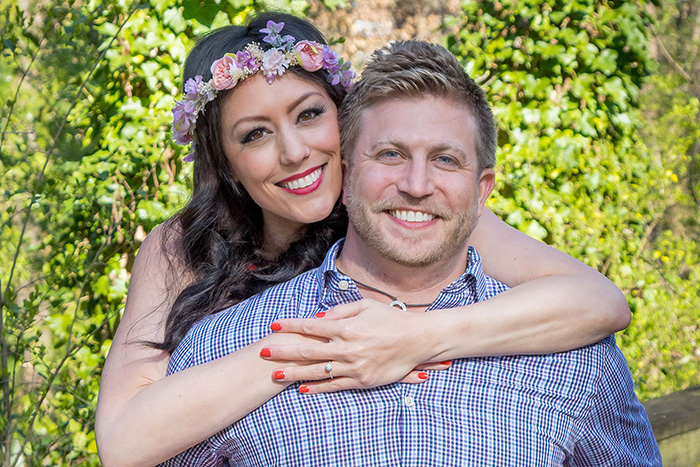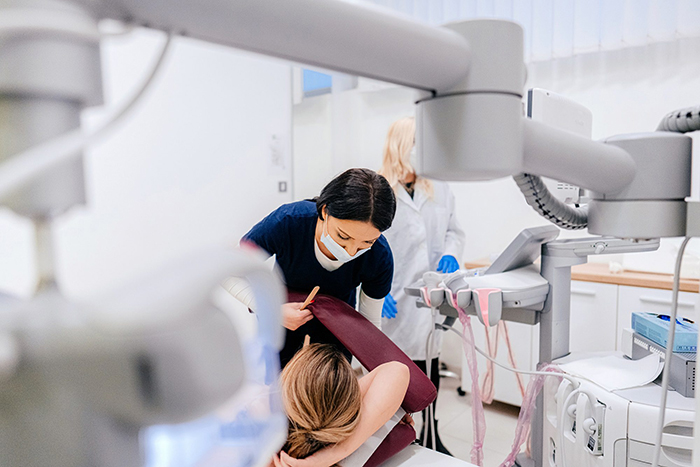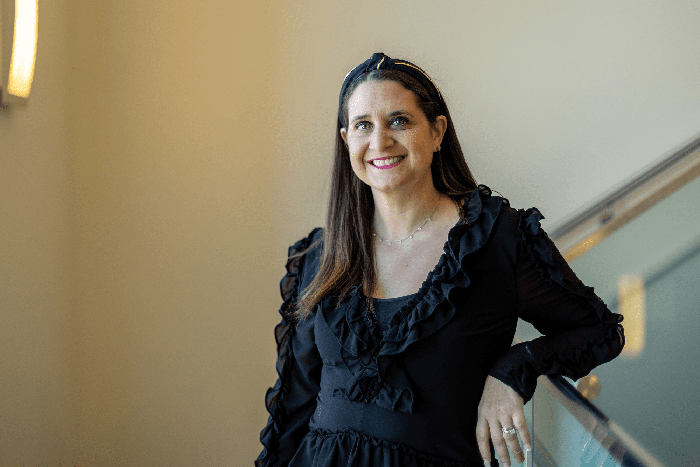On her daughter’s birthday that December, Marlena danced down a Soul Train line filled with family and friends to ring a bell. At Winship Cancer Institute, this tradition celebrates when patients complete their treatment. Marlena got to ring it once when she finished radiation and again when she finished chemotherapy. And each time, the sound of the bell meant everything.
Pursuing Purpose
While Marlena was undergoing treatment, she felt a tug toward something more, a pull to find her purpose. So, after some research, she decided to attend graduate school for counseling.
“My mother was a school counselor, which I never wanted to do. But I felt like I was being called to the therapy field,” says Marlena. In August 2020, she started her master’s degree in clinical mental health counseling — and plans to graduate in May 2023.
Marlena’s daughter says, “I’m really proud of my mom because I never would’ve thought she’d go back to school. And just seeing how strong she is, it makes me look up to her.”
The Second Time
In February 2022, Marlena felt a painful lump in her armpit on her right side that upended her life once again. She contacted her oncologist right away, and they biopsied the area.
“I was in class on a weekend when I got the call. My radiologist told me it was triple-negative breast cancer again, and it was considered metastatic,” meaning it was spreading to other parts of her body (stage four). “I was pissed off because I have things that I’m doing! I’m in school and just trying to reach the point of internship.”
Having gone through treatment once already, Marlena knew what it would demand of her. So, she made some changes the second time around, including getting a therapist. “I would say anybody going through a cancer diagnosis needs to have a professional to talk to.” Having a therapist has helped Marlena cope with her diagnosis and work through challenges. Marlena has also built up a support system outside of therapy that includes others who have experienced a cancer diagnosis.
Treatment Round Two
 Marlena is working with breast medical oncologist Kevin Kalinsky, MD, for her treatment plan and feels confident. “Dr. Kalinsky cares for me as a human being, not just a patient,” she says.
Marlena is working with breast medical oncologist Kevin Kalinsky, MD, for her treatment plan and feels confident. “Dr. Kalinsky cares for me as a human being, not just a patient,” she says.
Recent advances in treatments for breast cancer give patients hope. “It’s no longer hopeless when you hear the words ‘stage four,’” says Dr. Kalinsky. “At Winship Cancer Institute, we’re bringing new drugs to patients to help them live longer and have a good quality of life.” Learn more about research, clinical trials, and patient-centered care at Winship.
This time around, Marlena’s treatment includes chemotherapy and immunotherapy. An exciting new form of treatment, immunotherapy teaches the body’s immune system to fight back against cancer. So far, Marlena is responding well. “As far as I’m concerned, my prognosis is great because I’m doing great,” she says. “I feel great. And I’m living toward a bigger purpose than just being a breast cancer patient.”
Planning for the Future
After she graduates as a clinical mental health counselor, Marlena sees herself working with historically underprivileged and underserved people. “I know this diagnosis is helping me fulfill a bigger purpose with my life.” She also plans to offer pro bono services to other breast cancer patients and survivors.
“I’m not done ringing bells yet,” insists Marlena. Whenever she hears others ring the bell, she rejoices for them because she knows what they have overcome. “Someday, I’m gonna ring that bell again.”
Know When to Get Checked
The earlier breast cancer is found, the better the treatment works. And you may not ever notice a lump—in fact, most breast cancer starts too small to detect by hand. So, while it’s important to know your body to recognize any changes, getting regular mammograms can catch cancer early on.
“I tell my friends it’s very important to know your body and get your mammograms on a regular basis,” says Marlena. “You have to do it.”
Dr. Kalinsky explains, “The general recommendation is that any woman 40 years or older should talk with their provider about getting a mammogram.” Certain people may have different recommendations based on their individual risk factors, so talk to your provider.
You can schedule your mammogram at Emory Healthcare by calling 404-778-7465.


 Marlena is working with breast medical oncologist
Marlena is working with breast medical oncologist 

